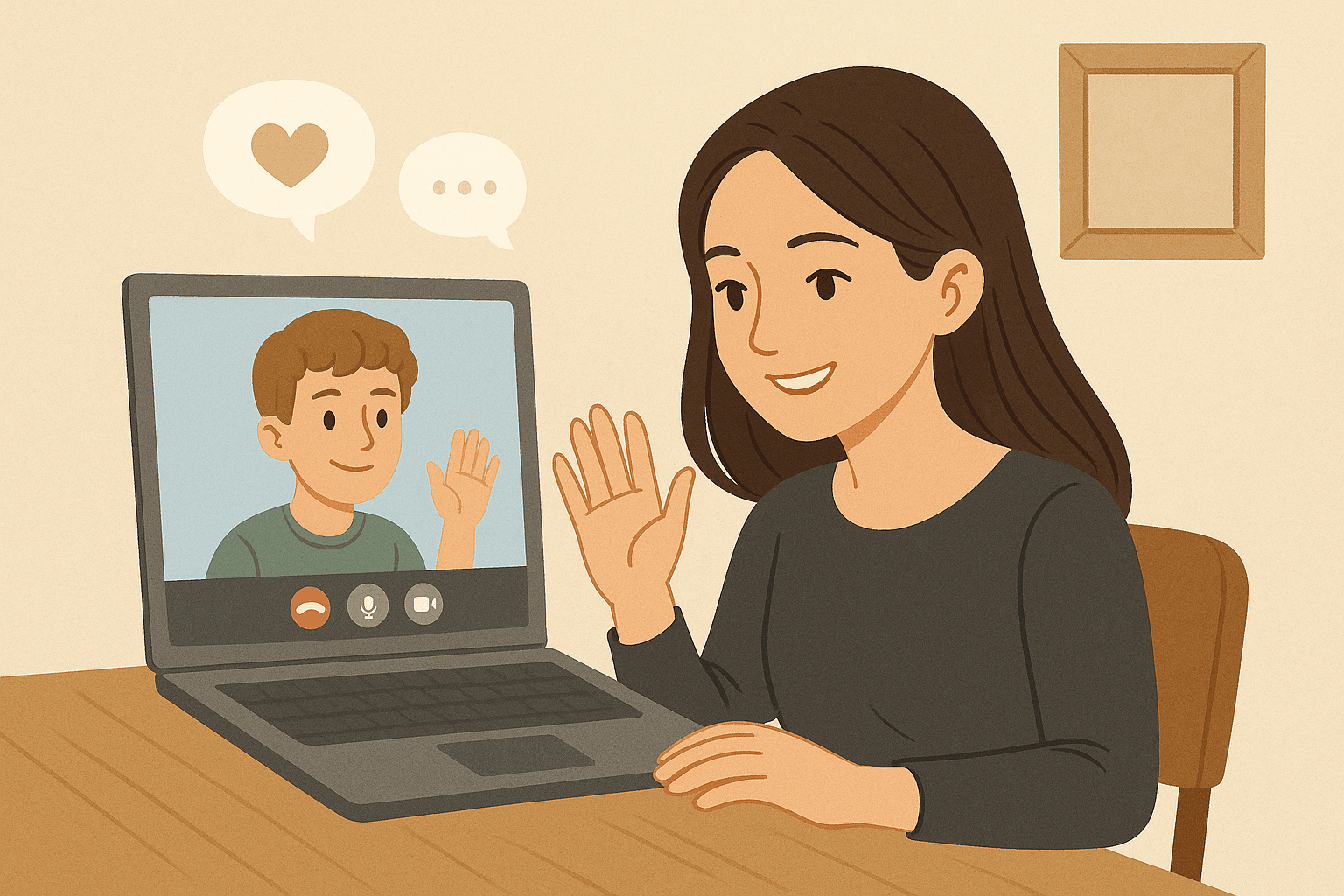In the digital age, relationships no longer exist solely in the physical world. Whether romantic, platonic, or professional, many of our connections thrive in the online space. But as we shift more of our interactions to texting, video calls, and social media, it’s essential to understand what a healthy online relationship looks like and how to maintain one.
Whether you’re meeting someone through a dating app, maintaining a long-distance friendship, or even collaborating remotely, healthy online relationships share key characteristics that make them respectful, fulfilling, and sustainable.
Let’s explore the signs of a healthy online relationship and how to cultivate one.
1. Open and Honest Communication
Healthy online relationships, just like offline ones, rely on clear and open communication. Whether you’re chatting over text, video, or social media, honesty and transparency are key. Here’s what this looks like:
- Active Listening: Both parties should listen and respond to each other thoughtfully, rather than just waiting for their turn to speak or multi-tasking during conversations.
- Expressing Feelings: In a healthy relationship, you feel comfortable expressing your thoughts and emotions. You should be able to openly talk about how you feel, what you need, and what your expectations are without fear of judgment or backlash.
- Clarifying Intentions: Online, it's easy for messages to be misinterpreted, so make sure you're clear about your intentions and ask for clarification if you’re unsure of the other person's meaning. Avoid assuming tone or motives based on text alone.
2. Mutual Respect and Boundaries
Respecting each other’s boundaries is a cornerstone of any relationship, and online relationships are no different. Healthy online relationships acknowledge the need for personal space and set clear boundaries for communication.
- Respecting Time: Just because someone is online doesn’t mean they’re available 24/7. Healthy relationships respect each other's schedules and don’t demand constant attention.
- Agreeing on Boundaries: Discuss and agree on what’s comfortable regarding communication frequency, privacy, and what’s shared publicly (like social media posts or tagging). Both parties should feel comfortable saying “no” or expressing discomfort.
- Privacy and Consent: Respect each other's privacy by asking for consent before sharing photos, personal conversations, or tagging someone on social media. Never pressure someone to share more than they’re comfortable with.
3. Trust and Transparency
Trust is essential in any relationship, and it’s especially important in the online world, where people often interact without face-to-face contact. In a healthy online relationship, trust is built on honesty, transparency, and reliability.
- No Secrets or Hidden Agendas: Both parties should be honest about who they are and their intentions. Deception, even in small matters, can undermine trust.
- Transparency in Communication: If you’re in a romantic or intimate online relationship, be upfront about other relationships or your intentions. Likewise, in friendships or professional relationships, avoid hiding information that could impact trust.
- Avoiding Jealousy and Over-Control: A healthy online relationship doesn’t involve constant monitoring or checking up on the other person’s activities. Trust means giving each other the freedom to interact with others without feelings of jealousy or possessiveness.
4. Supporting Each Other’s Well-Being
In a healthy online relationship, both people are supportive and considerate of each other’s mental, emotional, and even physical well-being.
- Emotional Support: Even in the digital space, healthy relationships involve offering encouragement, empathy, and understanding when the other person is going through a tough time. Whether through a quick message, a virtual check-in, or a longer call, showing support strengthens the relationship.
- Respecting Offline Needs: It’s important to understand that people have lives outside of their online presence. Encouraging each other to unplug, take breaks from screens, or spend time offline for self-care is a sign of a healthy relationship.
- Celebrating Successes: Just as you’d celebrate each other’s achievements in person
Ready to explore how assistive technology can help?
Our team of experts is here to provide personalised advice and solutions.
Contact us today for a friendly, no-obligation discussion about your needs.
Get in Touch

